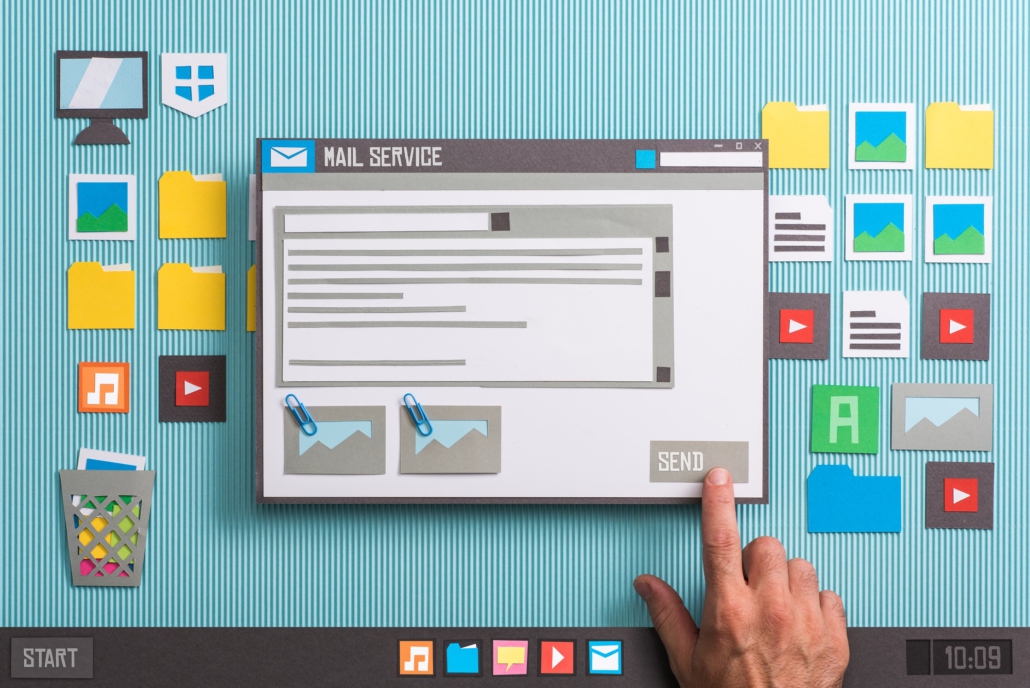LEGAL+ NEWS
Regardless of whether an ordinary letter, fax, e-mail etc. is used for the transmission of (contractual) declarations and/or documents, the respective receipt and/or content of the contractual declaration can always be disputed at the outset. Insofar as no special formal requirements – e-mail does not fulfill the written form! – the delivery of contractual declarations by e-mail is a practical means of transmission. The following should be noted:
Access by e-mail and proof thereof
A declaration by e-mail is deemed to have been received in business transactions if it reaches the recipient immediately after being sent.
The recipient must then take note of it during normal business hours, i.e. retrieve it from their mail server. If he does not do this, the mail is still deemed to have been received at the latest at the close of business. It is therefore sufficient for the recipient to retrieve it.
Briefly: When you send an e-mail, it is generally deemed to have been received on the same day, regardless of whether the recipient has read it.
However, the fact of receipt (retrievability) cannot be reliably proven solely by a “mere” receipt message of the mail protocol. The read confirmation function of the mail system, for example, can help here. If you have such a confirmation, it should be very difficult for your business partner to deny access. However:
What happens if the recipient answers NO to the mail system’s question: “Do you want to send a read confirmation”? This could lead to uncertainty. It is therefore better – if available in your mail program – to use the “Request delivery confirmation” function. In this case, the mail system will send you a confirmation itself. In my opinion, this “transmission confirmation” should generally provide successful proof in practice.
The delivery of contractual declarations by e-mail together with e-mail attachments
With regard to e-mail attachments, the above applies in principle. However, there tend to be a few uncertainties here, e.g. it could be claimed that the attachment was missing or could not be opened. It could also be claimed that the attachment was not opened “for security reasons” (risk of viruses etc.).
It is therefore advisable to include the main content of any attachments in the email itself. However, this is not absolutely necessary. In any case, you would expect the business partner to point this out if there are problems opening attachments.

Conclusion
Email is a practical way of sending (contractual) declarations and/or documents to a business partner. In sensitive cases, where access is particularly important and time-critical, the following tried and tested method of transmission should be used:
The declaration to be transmitted should be sent by post using the additional postal service “registered mail”. The postal official is then a witness that the letter has arrived in the letterbox, which is sufficient for effective receipt. In addition, the exact time of receipt can also be proven. In addition, the letter should have been posted in the presence of a witness. This also makes it possible to prove the contents of the envelope.

LATEST ARTICLES

Bid low and look high – How to deal with unfair offers in construction law
LEGAL+ NEWS Building law guide: Bid low and look up

Corona as a disturbance of the business basis?
Since the beginning of the coronavirus crisis, countless contractual relationships have not been able to be implemented as planned. The government corona measures, for which none of the contracting parties are naturally responsible, were mostly to blame. This has raised the exciting question of how to deal with cases in which the main contractual service – e.g. the provision of the premises in tenancy law constellations – could still be provided despite the corona measures, but the tenant was unable to use the premises in whole or in part as a result of the corona measures.

Action from abroad – service effective?
Being sued is always unpleasant. However, if you have to deal with a lawsuit from abroad, the annoyance is considerably greater for various reasons, just to mention the often considerable costs. The first question you should ask yourself when you find a claim from abroad in your letterbox is: Is service of the claim effective at all? This is often not the case, which brings you various advantages (e.g. saving time, possibility of taking your own procedural steps, etc.).
CONTACT

+49 (40) 57199 74 80
+49 (170) 1203 74 0
Neuer Wall 61 D-20354 Hamburg
kontakt@legal-plus.eu
Benefit from my active network!
I look forward to our networking.
This post is also available in: DE

